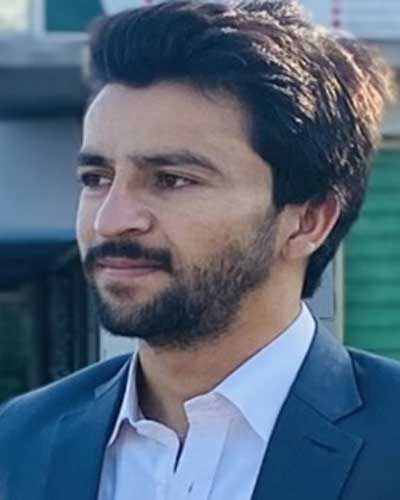Initially the concept of middle power was given by Giovanni Betore an Italian political thinker in 16th century. He had divided world into three types of states namely, Great powers, Middle powers, and Small powers. A middle power state is one which exerts a significant role on other nations typically seen as bridge builders between larger supremacies by using its diplomatic skills to mediate conflicts and promote cooperation on international issues. They have sufficient strength and authority to stand on its own without help of others.
When explaining Pakistan’s behavior as a middle power, it is important to keep drivers of behavior in context. For instance, middle powers like Australia, Canada and European countries. They include economic development, socio-political stability, and infrastructural maturity. In case of non-European countries like South Korea and South Africa are the fast developing economies whilein case of Pakistan however, its ideology, Geostrategic location, military power and natural resources proves it to be the more prominent and aggrandize it in the global face.
The leading statistical indicators of Pakistan regarding its natural resources are noticeable by any given standard. The country possess world 2nd largest salt mine and coal reserves including Thar and so many otherprecious minerals like marble, granite, Zinc and Bauxite which worth around $100s of billion excluding the cost of salt mine. The Sain dak and Reko Dek mine of Baluchistan also worth around billions of dollar. By a research of Pakistan it has 20 trilion cubic feet of natural gas and 100 trillion cubic feet of shale gas reserve. According to US information Pakistan has 9bn barrel of shale oil recoverable by available technology. Besides, it is site for one of the oldest human civilization (Indus valley) and its industrial outputin 2018 was measured around $38.33bn which is low but comparable better in its own records.
According to, former chief of Army staff General (Retd) Jahangir Karamat, once interviewed “Pakistan’s military strategy is of course a part of its integrated material strategy, basically in response to threat perception. However, the additional consideration of military power as aprestige factor in the regions In relation with Muslim world as an active participant in world and coalition and peace keeping arrangements” If we look into military capabilities it is 10th most powerful military power in world and 6th largest military force of over 900000 out of which 637000 are on active duty.According to SIPRI it has the fastest growing nuclear capability and possesses 100-120 nuclear weapons. It also has acquired China made andindigenously made tanks, Submarines, frigates, multiple rocket launcher and coastal defense crafts.
In addition, In 90s it developed the light weight combat aircrafts including JF-17 thunder, 120 block-1 JF-17, B-II and B-III compatible to French made Rafael which India recently obtained. It also has developed short range ballistic missiles Nasar 60kM to long range Shaheen III 2750Km. pertaining to these long ranged missiles the America recently sanctioned on four companies of Pakistan including the Pakistan development complex.
Moving toward the ideological basis of Pakistan it was founded based on Islamic principles. Faisal Dewji called Pakistan as Muslim Zion state which strongly supported independence movements of Indonesia, Tunisia, Sudan ,Morocco, Libya and established cordial relations with these postcolonial countries. Not only this but the state also embraced religion as fundamental stone and a guide to conduct its international politics basis from the first document – Objective Resolution 1940 and then constitution 1956,1962 and 1973. Domestically it utilizes its ideological foundation to counter divergent ethnic, sectarian and racial identities.
Externally, Pakistan turns it into a springboard to claim to be a so called fort of Islam thus, a true global representative of Middle Eastern, Central Asian and North African Muslim majority countries. In addition, the state also claims an indispensable middle power owing to be situatedin most geostrategic mobile area of the world. It is gateway to central Asian the home of so called great game to its west Afghanistan; a great military conflict of great power like US war on Terror since two decades. In the east India and North China the nuclear rivals whereas, in south Indian Ocean to which everyone wants their influences especially, Russia, China and US where Pakistan can play an active role.
Now the multibillion project of CPEC enhanced its importance further. With this the Iran is adjacent to it, one of the most important players in Middle Eastern politics of oil, ideology and war. Hence, the geographic link of Pakistan with Iran also plays a pivotal role in the defense of South Arabia, is another dimension of its significance. Recently the insurgencies in Syria dethroned the government of Bashar ul Assad, the genocide of Israel in Lebanon and Gaza, the Russian plundering in Ukraine are seemingly changing the world order as in this feud the key players like Iran, US and Turkey etc. are directly or indirectly involved.
In a nutshell, it can be affirmed that Pakistan is a middle power because of its diverse resources, ideological stand point, military power and geostrategic influence which empower it to act as prominent player in respect to the US hegemony and paradigm shift as, during world war it allied with western block through SEATOand then CENTO During 1980s, it participated in hot war of soviet invasion. Then in 1990s it developed an indigenous second defense line of Mujahedeen due to the economic sanctions and to replicate Mujahedeen experience of Afghanistan in Kashmir later on, in 2013, ithad broadened its multi-lateral strategic engagement with China through multibillion projects of CPEC.Yes! It seems middle power in itself and recognized as such by the analysts around the world. (Source: Foreign Policy of Pakistan by Ghulam Ali)
Sign in
Welcome! Log into your account
Forgot your password? Get help
Password recovery
Recover your password
A password will be e-mailed to you.





